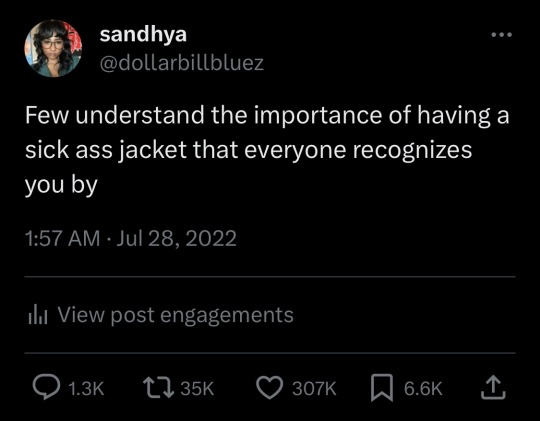Text

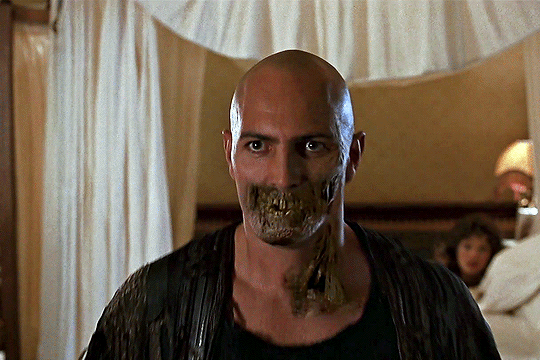
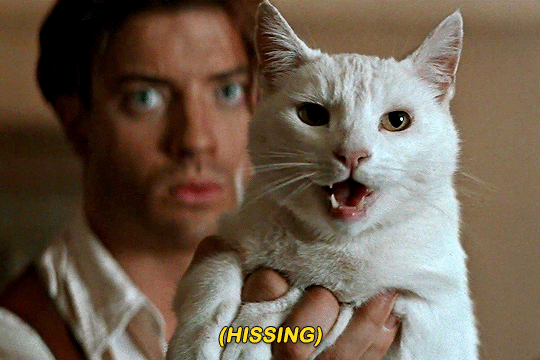

The Mummy (1999) dir. Stephen Sommers
#the mummy#brendan fraser in this movie and honestly the entire franchise is what I want to look like fr
7K notes
·
View notes
Text

"Give me one good reason why yours should prevail"
332 notes
·
View notes
Text
Still thinking about EPIC because I just love how EPIC handles Ody’s guilt.
Now, I don’t think I need to deep dive on how Odysseus’ guilt drives him in Act I. We’ve been obsessing over that for ages lmao, but very briefly: He feels awful for killing the infant Astyanax, and tries to force Polites’ “Open Arms” philosophy in order to ease that guilt.
Then, in “Monster,” Odysseus grapples with how his guilt leads him to make mistakes, asking: “What if I’m the one who killed you / every time I caved to guilt?”
And the implication is that gives up his guilt, deciding he needed to be a monster who “threw that guilt away.” And yet.
He never does.
He never stops feeling guilty—not about what he does in Act I, and not about what he does in Act II. We see it in how he agonizes over Zeus’ impossible choice in “Thunder Bringer”; in “Love in Paradise” when he’s haunted by the ghosts of his loved ones. And it’s not like he’s unaware of what he’s doing—Odysseus knows he’s been trying to suppress his feelings, most of all guilt and remorse.
In “Six Hundred Strike,” Poseidon rhetorically asks “How will you sleep at night?” He wants to know how Odysseus is going to live with his guilt, if he even still feels guilt. Odysseus answers his rhetorical question literally, “Next to my wife.”
Which, not only is that just a raw line, but it also does give a rhetorical answer. Odysseus knows that he isn’t going to be okay, that the guilt will way him up inside for the rest of his days, but he also knows he can count on Penelope. That she will help him shoulder his burden.
And he’s prove right in “Would You Fall in Love with Me Again.”
Because, finally. After twenty years, Odysseus is home, safe and sound—and all at once the guilt hits him. The pain and regret over every decision he had to make comes crashing down the moment he no longer had to suppress it.
And he hates it; he hates himself for making those choices, even when there was no other way to get home.
So he tries to dehumanize himself once more—to convince Penelope and himself that he’s become some kind of remorseless monster. Because that’s how he coped with it last time. That’s how he survived “Monster.”
And Penelope sees right through his bullshit. She cuts through his guilt and self-loathing to tell him, in no uncertain terms, that he is still human; that he is loved. And in doing so, tells him that it’s okay to grieve, to feel that guilt and let it go. He’s suffered enough.
727 notes
·
View notes
Text
Odysseus, full of worry his wife won’t love him after learning what he did: I slayed a bunch of men and monsters without mercy to get home to you
Penelope, his wife, who is from Sparta, kicking her feet and twirling her hair: My love we’re already married, you don’t have to propose again
1K notes
·
View notes
Text

you don't think I know my own palace?
3K notes
·
View notes
Text
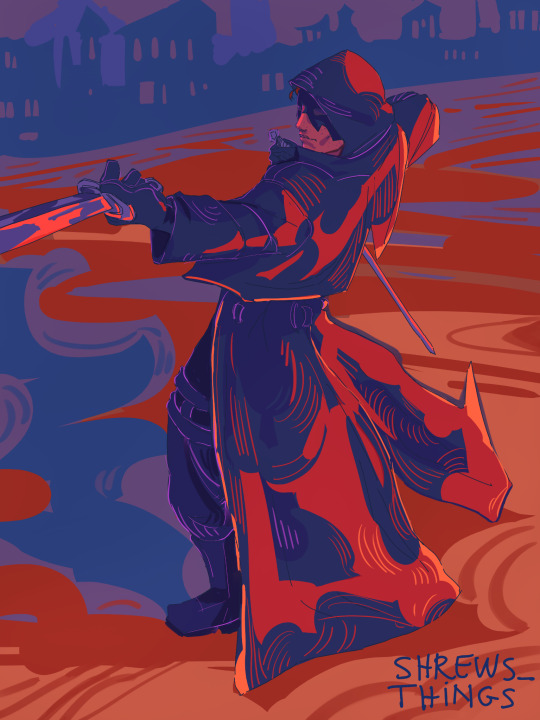
Pain reminds us that we are alive or something I guess
153 notes
·
View notes
Text
sam was exhausting me so bad like…interesting how male challenge beasts are impressive, but female challenge beasts are just skating by with the necklace, huh?
65 notes
·
View notes
Text
never thought a wind could commit a hate crime
86 notes
·
View notes
Text
teeny saying out loud in front of god and everyone that sam gives them gender envy and thats why they hated him so much. is maybe the ballsiest thing anyone has ever done on survivor
254 notes
·
View notes
Text

Cat hiccup and his weird fuck ass bird
2K notes
·
View notes
Text
Hiccup & Toothless fly over berk!

Inspired by Kiss the Sky from the Wild Robot.
2K notes
·
View notes
Text
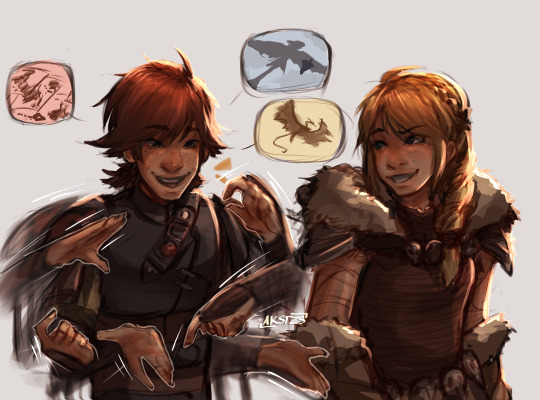
watched a compilation of Hiccup waving his hands around
7K notes
·
View notes
Text
the wicked movie teaches important moral lessons like "be bisexual in college" and "don't trust politicians" and "if you push someone who's in a wheelchair without their permission, someone might throw a bench at your head with their mind"
45K notes
·
View notes
Text
i want more nuance to be entered into the discussion of the green girl sorority and how differently cynthia plays elphaba in comparison to those who came before her because while a lot of people are rightfully like "why was elphaba not black from the beginning" and celebrating that she is now being played by a black woman, i think we need to be careful in just writing off all the elphabas of the past as Random White Girls when the role was championed (and often followed/succeeded) by a jewish woman
the pop culture archetype of the Wicked Witch has deep roots in antisemitism stretching faaaar far back. there is a level of reclamation happening in casting idina menzel, a jewish woman, to play the Misunderstood and Maligned young girl who is branded as exactly that. and stage!Elphaba is also written and acted with jewish stereotypes in mind--she is loud, aggressive, no-nonsense, blunt. she is quick to advocate for herself and shut down the discrimination she faces. all of this is very intentional! her personality is abrasive from years of abuse, and that makes propagandizing her easy. this is literally the thesis statement of the musical--it's not about aptitude, it's the way you're viewed.
cynthia's performance of elphaba is fucking INSPIRED despite going in a completely different direction. she's much more reserved, analytical, one of her key character traits is how well she can read people (see her calling out Galinda as insecure/putting on airs in their first scene together, clocking that Fiyero is using his party guy persona as a shield for his own depression) elphaba's attempts to blend in and make herself smaller all fail simply because of her existence, if not that then because she feels empathy so strongly she often struggles to hold back from acting, protecting.
personality wise, though, cynthia's elphaba is very quiet and closed-off, not at all the bullet-to-the-face that she is in the stage show, and... she still gets propagandized and maligned. though this seems to contradict the other interpretation, it tells of the other end of the spectrum of propaganda, one that black women watching (and many, MANY other marginalized folks) are sure to identify with--it does not matter how "nice," how reserved, how small a black woman makes herself. a racist society will still scrutinize her every action for a way to parse ill intent from it, brand her as an angry black woman who is dangerous and wicked, and write off any humanity she has in the process.
these two very different interpretations tell of the lie of assimilation. the fact of the matter is, when you are marginalized, there is no way to sand down your edges enough to make the people oppressing you "accept" you. that is why wicked is a tragedy at its core. whether loud and aggressive or quiet and unimposing, there is nothing elphaba could have done to make the people of Oz see her as anything other than a scapegoat to blame all their problems on.
so while i definitely appreciate that people are excited for black girl era elphaba, i would encourage us all to still show appreciation for what came before--that was not white girl era elphaba. that was jewish girl era elphaba. two houses, both alike in dignity, two stories both worth being told.
14K notes
·
View notes
